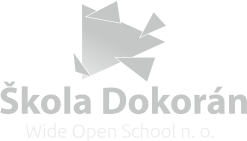Welfare, development and social inclusion
Implementation of a basic income guarantee for families in conditions of extreme poverty
Where
Romania, Bulgaria, Slovakia
Duration
30 months
Description
The project is a pilot intervention for the implementation of a basic income guarantee for families at risk of social and occupational exclusion.
The objective is to research and promote innovative ways of providing welfare services to marginalized families in Bulgaria, Romania and Slovakia, including Roma families.
The latter are particularly vulnerable and often subject to stigmatization and exclusion from economic and working contexts.
The project tests an alternative mechanism for the distribution of welfare services (through electronic payment cards), combined with activation measures that support the empowerment of families and their socio-economic improvement. With processes aimed at self-development and financial education courses, the project aims to support people's ability to integrate into the labor market and their social inclusion.
Participation in the project is voluntary. The assessment of the participating families, starting from the assumption that poverty is a multidimensional phenomenon, , considers not only income, but also various aspects of people's lives. The project therefore makes use of the Poverty Stoplight approach (developed by Fundación Paraguaya and implemented in more than 40 countries) which allows families to self-assess their poverty levels and carry out personalized strategies to overcome their specific shortcomings. Through individual accompaniment, therefore, families are informed about the public community services available and encouraged to actively seek them.
The project is promoted by the European Parliament and implemented by a Consortium formed by ACRA and ARS Progetti. The activities are implemented by working with three local organizations: Integro Association in Bulgaria, Amare Rromentza in Romania and Škola Dokorán in Slovakia and supported by the advice and technical assistance of the World Bank.
Goals
- Develop an innovative approach in the distribution of welfare services services (through electronic payment cards) to families in conditions of extreme poverty, in combination with activation measures to support their socio-economic development and social inclusion.
Project activities
- Methodology development
- Drafting of a methodological manual
- Creation of a system for the delivery of benefits and social allowances through electronic payment cards
- Stakeholder management
- Stakeholder engagement
- Awareness raising activities aimed at local communities
- Creation of a local "task force" in each municipality
- Analyses
- Registration of participants/beneficiaries (selection of families)
- Detailed mapping of the living conditions of the participants
- Detailed mapping of participants' existing resources and capabilities
- Design and implementation of customized development plans
- Preparation of personal development plans for each family
- Training, tutoring and accompaniment activities for the adults of the participating families
- Payment of social benefits and allowances to beneficiaries (via electronic payment cards)
- Support in the identification and transfer of innovative solutions to respond to local needs.
Impact
Direct beneficiaries:
- 500 adults and 75 families per country (Bulgaria, Romania and Slovakia) in conditions of extreme poverty, with few job and inclusion opportunities (of these, at least 10% are Roma)
Indirect beneficiaries:
- The population residing in the affected municipalities, thanks to community involvement and socio-economic improvement of marginalized households
Given the potential replicability of the project, the ultimate goals are long-term sustainability and the involvement of local authorities, government and civil society in its future implementation at national level.

